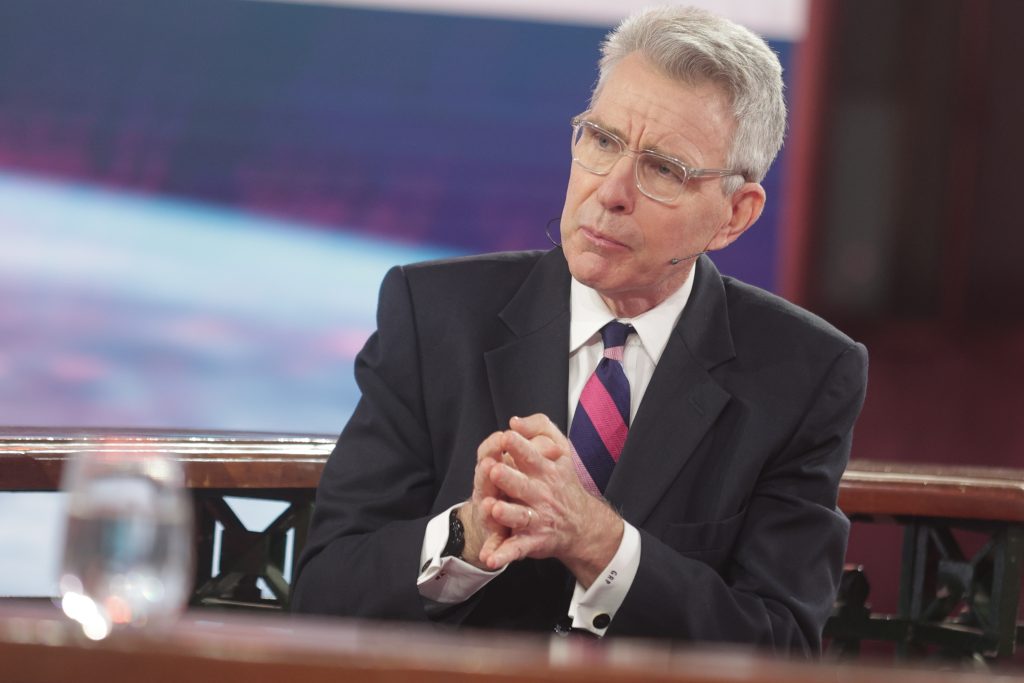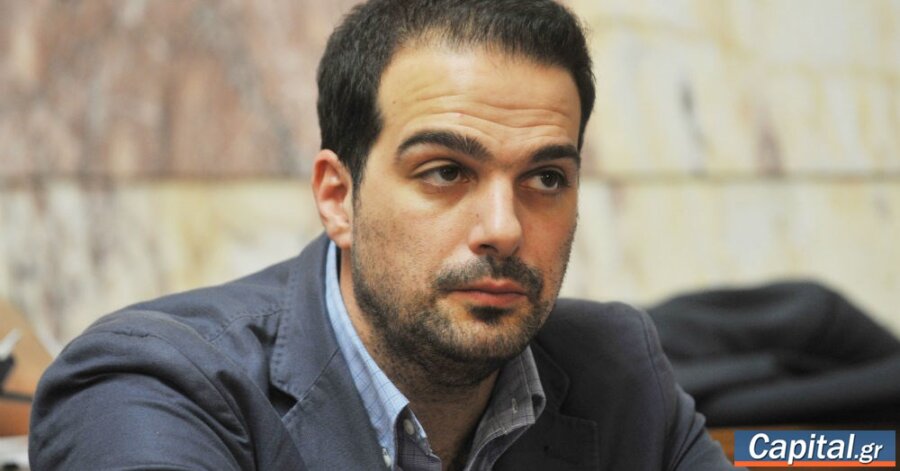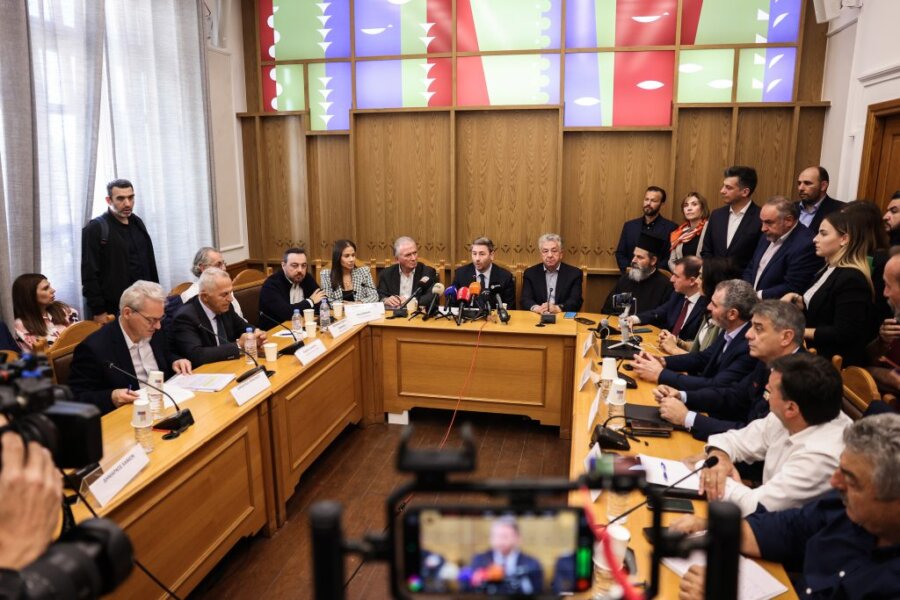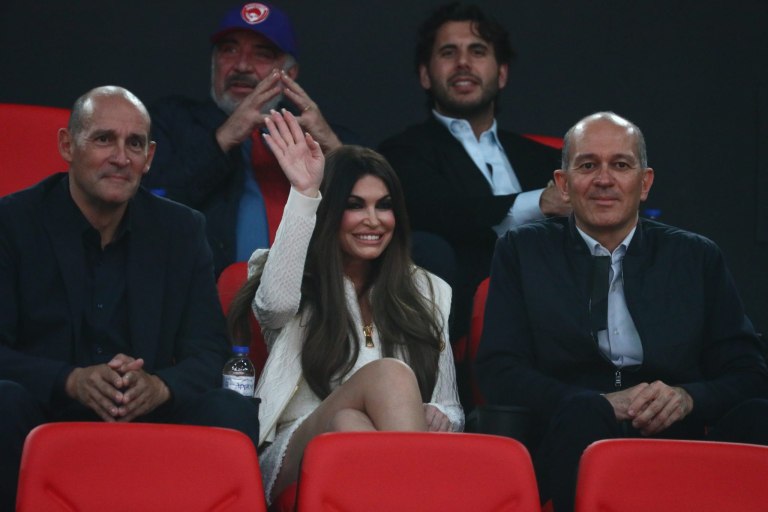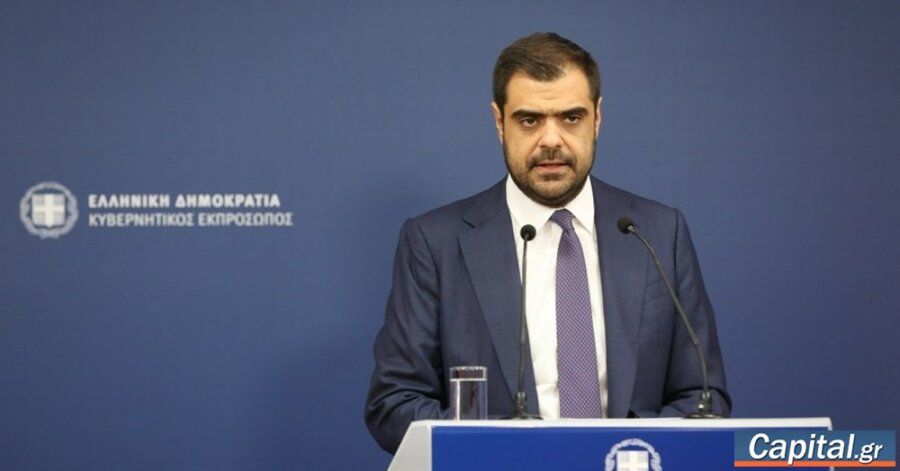Interview By Maria Vasileiou
It is clear that Greece is ready to play an even more important role in the Eastern Mediterranean energy issues, former US Ambassador to Greece and former Assistant Secretary of State for Energy Resources Geoffrey Pyatt told me in an interview with Greek daily “Ta Nea” on the sidelines of the Delphi Brussels Forum held in Brussels on November 6. Amb. Geoff Pyatt emphasized, however, that American energy companies are not political actors and that it is a long-standing position of the US government both under Republicans and Democrats not to take sides in maritime disputes. He also talked about the US Greek relations and about diplomacy, which he likened to gardening.
A lot is happening in the field of energy in Greece. The interministerial meeting of the Partnership for Transatlantic Energy Cooperation (P-TEC) P-Tech is taking place in Athens with the participation of three American Secretaries. ExxonMobil announced that they will start drilling in the Ionian Sea. The US International Development Finance Corporation (DFC) will finance certain projects. A meeting of the “3+1” format is also expected. If you put all these dots together what is your conclusion?
Those three dots are all my babies. I was the creator of the “3+1” along with Secretary Pompeo in the first Trump administration. We continued to support it through the Biden administration, including with my role as Assistant Secretary of State for Energy Resources. I am delighted that there is now a ministerial level “3+1” happening again. There are a lot of reasons why it’s taken a little time. Elections in Israel, in Cyprus, in the US, in Greece. There is obviously enormous potential for even deeper cooperation, which is a priority for the US Government now through three administrations, the first Trump, when I drove it with Secretary Pompeo, through the Biden administration, when I drove the “3+1” energy dialogue as Assistant Secretary of State and now under the second Trump administration with Secretary Chris Wright. There’s tremendous convergence there. Second, in terms of upstream exploration. I was in the room when ExxonMobil and Total and Hellenic Petroleum signed the original license for the Greek offshore exploration, a good reminder that this is an industry that takes a long time. The timeline for oil and gas exploration is very different from the political timeline of one administration or another. We still have to wait and see what is the result of ExxonMobil’s exploratory wells. You’ve had exploratory wells off of Cyprus that were drilled and came up empty. ExxonMobil is very good at its science and its geology. So presumably if they’re moving ahead now with drilling, that means that they’re confident they’re going to find something. But it is going to take time. Predictability is important. But it’s clear that Greece is poised to play an even more important role in Eastern Mediterranean energy issues. You have two US companies leading the way. I would really emphasize also the role of Chevron because of their existing presence in Cyprus, their existing operations off the coast of Israel, their operations in Egypt. Both companies have demonstrated a strong commitment to the region.
As Ambassador in Greece, I was very proud to provide support to both of them. You mentioned the role DFC. I was ambassador when DFC received its congressional authorization to work in Greece. I was very focused through two administrations under both as President Trump’s ambassador in Greece and as President Biden’s ambassador in Greece, in providing encouragement for DFC to move ahead with the LFC shipyard investment, a $125 million investment, viewed as a success by DFC. My successor, George Tsounis played a leading role in getting that to the final implementation. You see the US Government working strongly on these issues under Republicans and Democrats. The important role that has been played by the embassy in Athens in helping to build this new architecture of US-Greece cooperation across the full spectrum of energy issues. It would be a mistake only to focus on oil and gas. There is the potential for us to do even more with Greece around the power interconnectors. The GREGY project that’s being run, that’s being driven by the Copelouzos group between Egypt and Greece, and then onward into the European power grid. The same with the Cyprus interconnector, which I know has been a source of frustration sometimes. I think Prime Minister Mitsotakis and the Greek government have been very clear about their views. And the work has to be done in Nicosia on that. I hope it does move ahead. The world needs more energy of all categories and we need more interconnections. That’s the story of so many of the things I worked on. The TAP pipeline, the IGB interconnector, the Alexandroupoli FSRU. They’re focused on Greece’s role as a connector across the wider region that stretches from Israel and the East Med all the way up to Ukraine.
All these initiatives in the field of energy are also connected with a broader geopolitical situation in the Eastern Mediterranean? Greece and Cyprus are expecting that these initiatives might lead to broader discussions with the help of the US.
I’ve worked as Assistant Secretary of State very closely with the Turkish government, with Minister Bayraktar. Turkey has worked on building its gas terminal capacity to encourage Turkey to diversify away from Russian gas, which is a strategic imperative for the United States. I think we want to see these issues as a driver of cooperation. Obviously, the geopolitical issues are complex. And I learned as U.S. ambassador that you try to put the United States in the middle of those relationships at your peril. That said, having big US Energy companies with a strong presence in Greece is of course helpful. The US Presence in Alexandroupolis something that I drove personally as ambassador, both in terms of the FSRU, but also our military cooperation that wasn’t a geopolitical project. It was a geoeconomic project, but it has geopolitical implications because it sends a message to other parties that the United States is interested, is present and will be supportive of Greece as a NATO ally.
The US has proposed a conference between Greece, Turkey, Libya, and Egypt. Prime Minister Mitsotakis has suggested a forum of these countries plus the Republic of Cyprus to boost cooperation on several levels with the ambition to reach a point where there could be discussions on broader issues, on more difficult issues, like the delimitation of the Exclusive Economic Zones (EEZ). Would the US Be interested in moving towards that direction?
Having had the privilege of working closely with Prime Minister Mitsotakis, with Foreign Minister Dendias, with Alexandra Papadopoulou, it’s very clear that Greece is not an escalatory party. Greece is looking to manage difficult issues. And the initiatives that you’ve described are consistent with that. It’s been a long standing position of the United States government under Republican and Democratic administrations, not to take positions on maritime disputes. This is an issue that has to be resolved by the governments themselves. But I’m confident that the United States is going to be engaged. When I encouraged Secretary Pompeo to sign up to “3+1” process, and when I worked with friends in the Greek diaspora in the United States to build political support, the East Med Act, which specifically put on record our congressional support on a bipartisan basis for this “3+1” cooperation send a message that the United States is invested, is interested and wants to see the whole region move ahead. I think in terms of institutions we already have the EMGF as a vehicle to facilitate a lot of these dialogues. I also thank David Harris, at the time he was the head of the American Jewish Committee. David’s vision always was that the “3+1” would expand to involve others in the region, perhaps Egypt, perhaps Jordan. Having worked closely with the American companies, Chevron, ExxonMobil, they don’t see themselves as political actors. They’re not looking to be diplomatic.
But if it is not clear, because of the lack of delimitation of EEZ where they can drill, wouldn’t that be a threat to their economic viability, so the US would be involved to safeguard the interests of the big American companies?
Look for instance at the work the Biden administration did to forge an agreement between Israel and Lebanon on maritime delimitation. That wasn’t driven by commercial interests. We had no companies involved. That was driven by the United States government’s interest in encouraging regional cooperation and stability and our support for the government to Israel. These issues are never black and white. They’re not solved. From one day to the next. You look for incremental progress. It’s a source of encouragement that the geopolitical situation today between Greece and Turkey has dramatically improved from what it was when I was Ambassador in Athens, when you had the case of “Oruc Reis”, the collision between a Turkish warship and a Hellenic Navy warship, which could have ended in a real disaster, but for the wisdom of the Greek captain who took evasive action. I would resist the temptation to mix these things together. Economic cooperation can certainly help to improve the atmosphere. There is already energy cooperation between Greece and Turkey, for instance, on the southern gas corridor allowing Azeri Gas to transit both countries through the TAP pipeline to supply Italian and European markets. During my tenure as ambassador, during my tenure as Assistant Secretary, it was not the policy of the United States to try to push its way into the middle of these issues. It was our policy to encourage cooperation, to encourage direct dialogue, and to provide support to our companies, to very actively encouraging our companies to do more in the region. I am proud of where we are today on the US Greece relationship. Diplomacy is like gardening. You plant seeds and sometimes that seed grows up into a big tree, but you’re usually not there to see that. But you know that others will benefit from the results of your work.
Kimberly Guilfoyle, also the US ambassador to Turkey, Tom Barrack, and Massad Boulos, the US Senior Advisor for Africa are closely connected to Trump. Would this help even more all these developments?
I haven’t met with Ambassador Guilfoyle. She has to reach out to me. That’s part of our ethics rules. I have met Ambassador Barrick. He impressed me for his understanding of the complexity of the region. He is also dealing with the situation in Syria. I also know Massad Boulos because I remain very engaged on issues around critical minerals in sub Saharan Africa. He knows the region. Ambassador Guilfoyle is the gardener now, so I want to make sure that she is successful in cultivating those seeds that I and my predecessors helped to plant, which have gotten us to a very positive moment in the US Greece relationship. In terms of how an ambassador works with the White House. It doesn’t hurt to have a direct line to the President. But we’re a big US government. It is much more important how you lead your embassy and how you use the embassy team to drive an interagency process. I talked about the success that we enjoyed in opening up Greece’s eligibility for lending from the DFC. That wasn’t an issue that I tried to call the White House, it was a matter of managing the system of the government. And that’s still the case. What’s so encouraging about the US Greece relationship today is that it is not a matter of one personality in either country. It’s a matter of institutions, the foreign policy establishments.
Πηγή: tanea.gr
